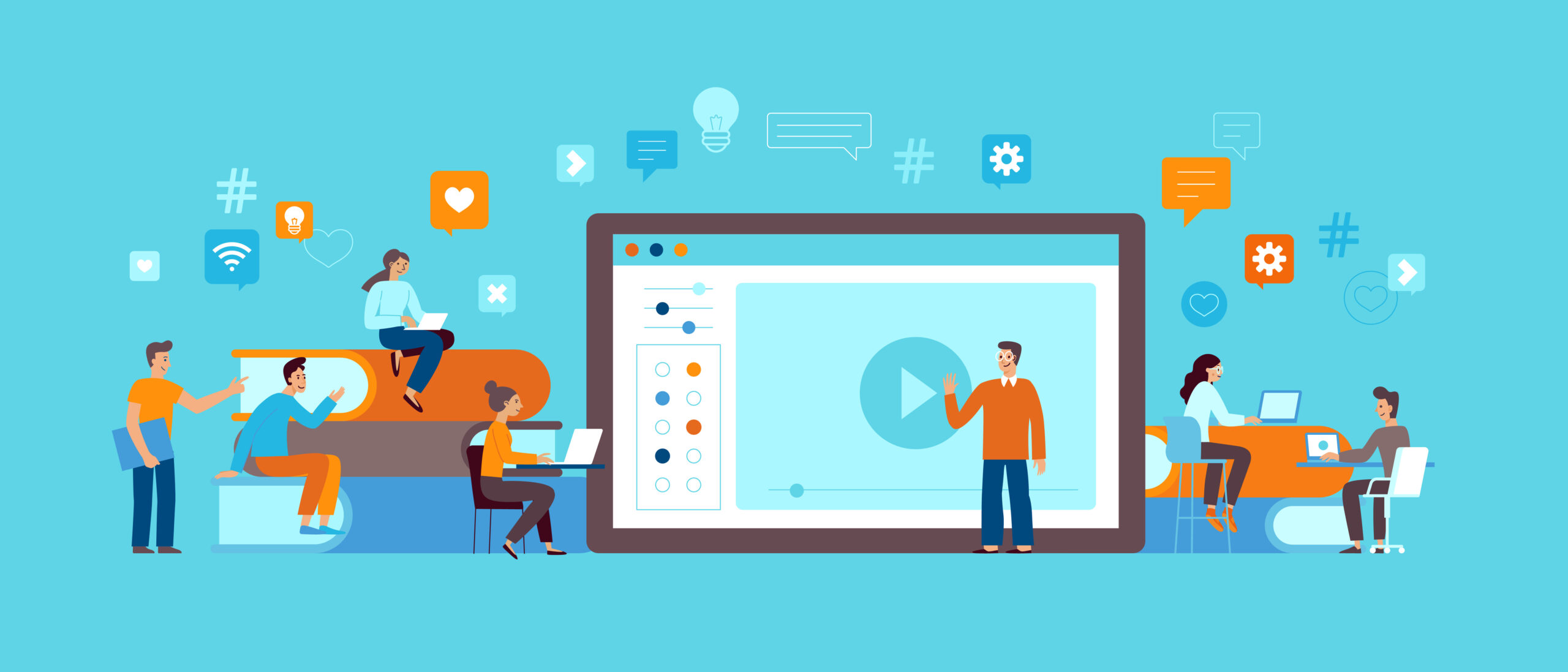In today’s digital age, the workplace is evolving rapidly, making upskilling more crucial than ever. With technology advancing at an unprecedented rate and industries transforming, organizations must ensure their workforce have the necessary skills to adapt and thrive in the face of change. Otherwise, they risk extinction.
But how can businesses deliver effective upskilling that is scalable and accelerates skills acquisition across their entire workforce? Advancements in artificial intelligence offer a tantalizing yet daunting prospect across every application. But if used responsibly and effectively, could it offer an answer to the skills deficit?
Tackling the skills challenge
I was speaking with Sabrina Khan, performance and development manager at reg-tech provider Encompass Corporation, she emphasized the shift from technical skills to now include power skills – essential soft skills that are transferable to various areas of work. As Sabrina aptly put it, “Today, a winning CV showcases both technical skills and the now indispensable power skills. Embracing power skills enables individuals to thrive in an ever-changing environment, boosting employability by honing the ability to adapt to new challenges.”
This point has never been truer. Sabrina is spearheading a mentoring program at Encompass to help with skills advancement, and there is an undeniable demand for it. Employees have voluntarily come forward as both mentors and mentees for the program, indicating a clear recognition at Encompass and many other organizations that technical expertise alone is no longer enough.
Soft skills or power skills have become vital for career adaptability and success. Effective communication, seamless collaboration, creative problem-solving and confident leadership are essential in the interconnected, team-oriented business environment we find ourselves in. In fact, research from Harvard University shows 85 percent of job success comes from soft skills, whereas harder skills account for only 15 percent. With the capabilities required for a job increasing by 10 percent each year, to stay ahead, businesses need to equip their workforce with the ability to navigate these changes and upskill effectively .
The role of coaching
Coaching has long been recognized as a powerful tool for skills development, with 70 percent of coachees reporting improved work performance, enhanced skills and greater work satisfaction. While a skilled coach can be instrumental in helping individuals upskill and enhance their capabilities, providing coaching on a larger scale poses challenges.
Traditional coaching methods, such as one-on-one sessions or even group coaching, may not be feasible or efficient when upskilling a large number of employees simultaneously. These methods, while impactful, often require significant time, resources and have a notoriously high price tag. Internal coaches can help to reduce the price tag, but the quality of coaching is generally inconsistent. That’s where AI and digital technology can step in, offering a potential solution that balances scalability with personalization.
Leveraging AI for enhanced upskilling
By leveraging AI, organizations can offer digital platforms that analyze an individual’s skills, aspirations, and motivations to deliver personalized coaching experiences that address their unique requirements.
Offering several advantages, AI can gather and analyze vast amounts of data to identify skills gaps and recommend learning pathways. By utilizing machine learning algorithms, AI coaching platforms can continuously refine their recommendations based on an individual’s progress and feedback, ensuring the learning journey remains relevant and effective.
But the power of coaching is that it is an emotional experience — it creates a change in mindset. How does AI match that? As large language models get better, AI can actually deliver an emotionally intelligent coaching experience. Through natural language processing and sentiment analysis, it is possible for platforms to interpret and respond to an individual’s emotions, providing empathetic support akin to a human coach. This ability to understand and respond to learners’ emotional state enhances the overall experience, fostering motivation and engagement.
But is AI coaching effective? Surprisingly, it can be more effective than human coaching — as Nicky Terblanche’s peer reviewed study concluded by comparing the two. Finding that goal attainment with AI coaching was more effective, even after coaching stopped. This is exciting research because in Drucker’s own words: “The only skill that will be important in the 21st century is the skill of learning new skills. Everything else will become obsolete over time.”
This approach empowers the workforce to become self-determined learners and reignites that natural love for learning, curiosity, and reflection. The very things that people don’t carve out time for in the hustle and bustle of everyday.
Traditional coaching sessions are generally formal unless an internal manager or mentor is available at the moment of need. With AI skills coaching, this can be continuously accessible in the palm of your hand. Making learning consistent and habitual is a powerful tool and a competitive advantage for organizations.
Human-AI collaboration
So, should AI coaching replace human coaching? Human-AI collaboration is essential to strike the right balance between technological advancements and the human touch. Human coaches can provide a deeper level of understanding, empathy, and contextual knowledge that AI may lack. By integrating AI tools into the coaching process, human coaches and line managers can amplify their impact and reach, focusing their efforts on higher-value interactions and personalized guidance.
To achieve this, coaches can leverage data throughout the entire coaching journey — from pre-session analysis to real-time insights and post-session evaluation. This valuable data offers coaches visibility into their coachee’s progress, empowering them to become more effective and efficient. This then helps managers to become better versions of themselves and enables the building of a collaborative learning culture, workforce wide. More importantly, it ensures that accountability for the development and nurturing of an individual stays with the line manager or team lead but enables them to be more effective.
Measurement matters
To ensure the effectiveness of upskilling initiatives, it is also vital to measure progress and track ROI. Traditional coaching experiences often rely purely on qualitative feedback and trying to make a link between this and goals within the performance management system, which can limit the ability to gather comprehensive measurement. However, digital coaching platforms provide a solution to this challenge by offering enhanced measurement capabilities.
Organizations can use data analytics provided by these platforms to track metrics such as skills development, current skills and gap analyses, engagement levels, comparative confidence, concern, commitment to learning, feelings of control, goal attainment and countless more things. By utilizing these data-driven insights, organizations can evaluate the impact of their upskilling programs, make informed decisions, refine their coaching strategies, and optimize resource allocation for maximum ROI.
Ethical considerations
Of course, as we explore the possibilities of AI coaching technology, we must also consider the ethical implications. Transparency and data privacy should be prioritized to ensure individuals feel comfortable sharing their personal thoughts and learning progress with AI coaching platforms. It’s important to establish clear guidelines and consent mechanisms that protect user data and promote responsible usage.
Accuracy also emerges as a significant ethical concern in the realm of AI systems. There is a risk of AI models providing incorrect or misleading information. While these models are trained on extensive data to identify patterns and generate responses, they can still make mistakes — similar to humans. However, unlike humans, AI lacks a contextual understanding that can sometimes be crucial. So, it is vital to combine AI coaching technology with human supervision and critical judgment. AI should be seen as a tool that complements human expertise rather than a complete replacement.
By keeping these considerations at the forefront, organizations can build trust and create a positive learning environment for their employees.
Real-world success
There are already a number of organizations using AI coaching technology to upskill their workforce, and there are many tools available that allow learners to engage in realistic conversations with an AI-enabled video coach. By simulating an in-person coaching experience or video call, AI can offer a platform for continuous reflection, guided goal planning and enhanced skills development. Powerful voice and text recognition allows individuals to have to articulate their strengths, barriers and challenges. This is the power of AI: A coach that will listen and respond without judgment.
Some businesses report that even the most disengaged learners have found AI coaches engaging and supportive. In a pilot of 442 users, confidence increased by 92 percent in skills development. These positive responses highlight the effectiveness of AI coaching experiences in fostering learner engagement and motivation.
Final thoughts
AI coaching technology presents a significant opportunity to revolutionize upskilling within organizations. By delivering personalized, intuitive and emotionally intelligent coaching experiences at scale, AI coaching platforms can accelerate skills development, address individual skill gaps and enhance the overall learning journey.
It is important to approach the integration of AI coaching technology with careful consideration of the ethical implications. The combination of the power of AI alongside the human touch can accelerate skills development and allows organizations to unlock the full potential of their workforce to thrive in an ever changing, skills-driven future.















